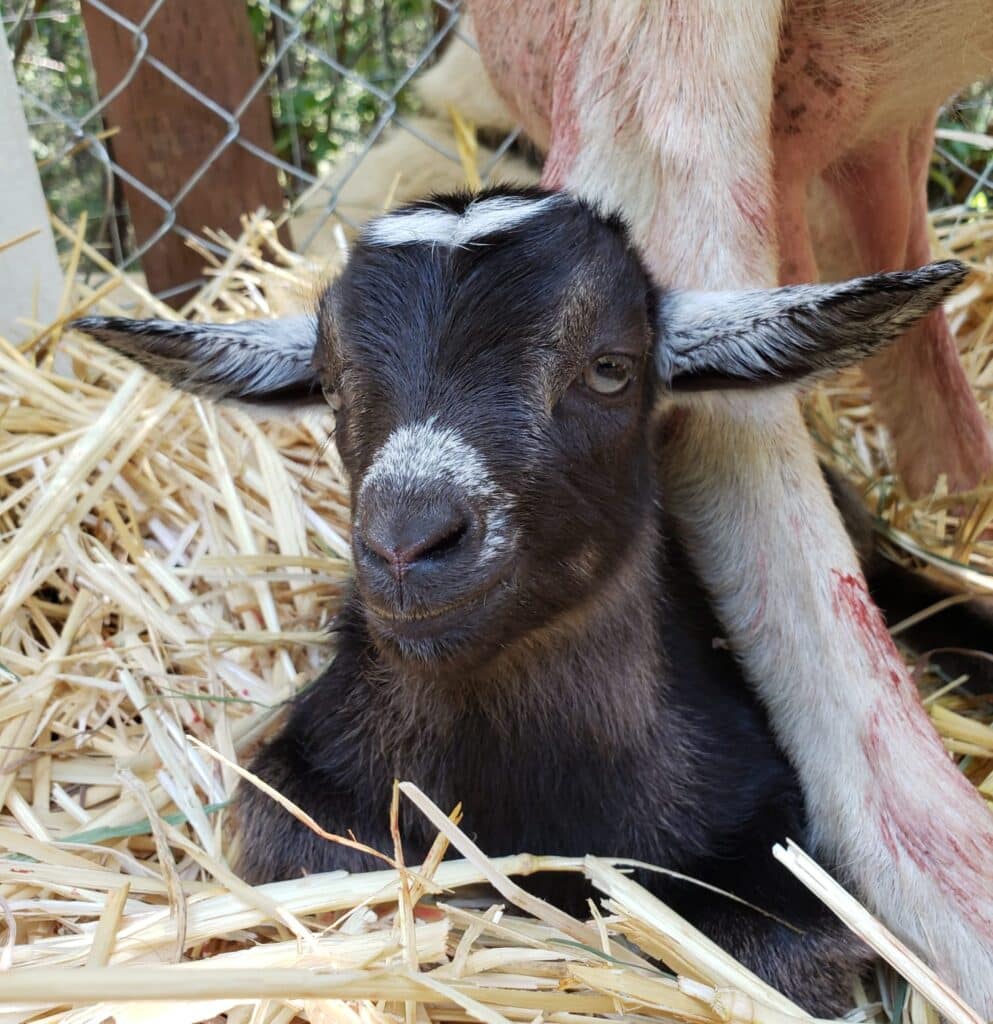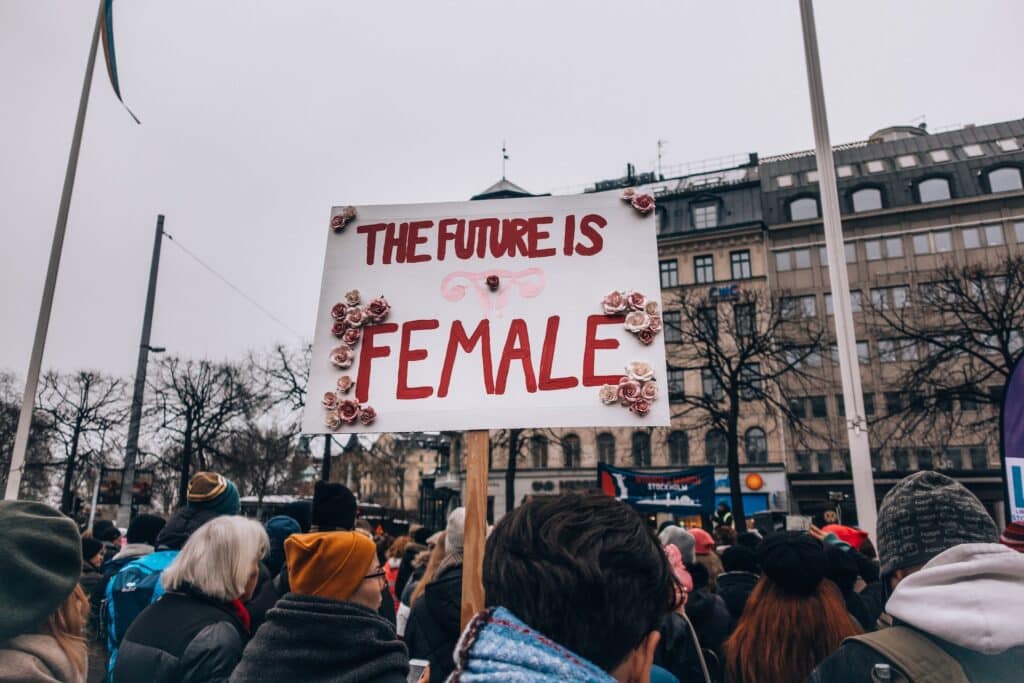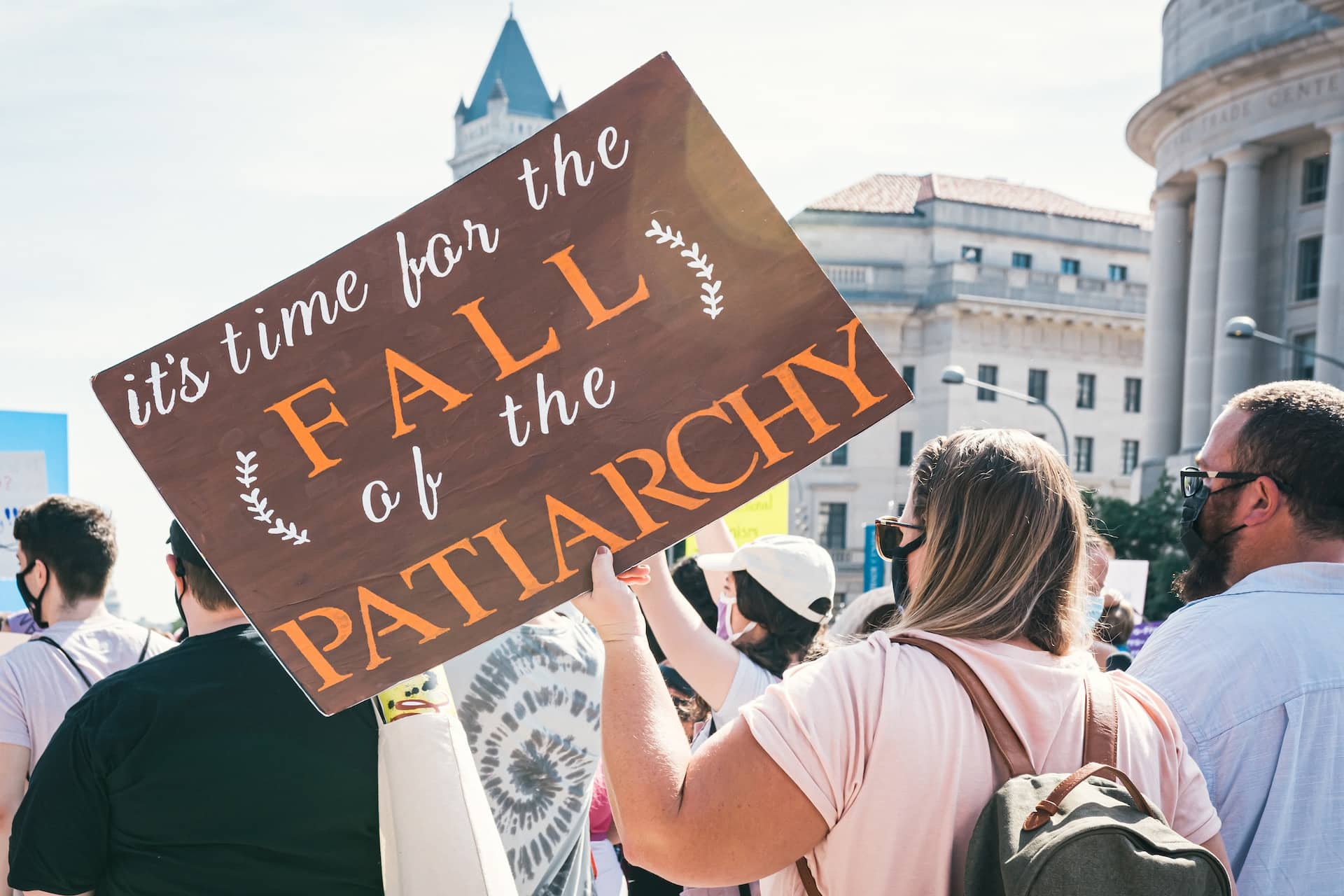Here at Camp One, we just experienced the birth of four goats.
God blessed us with three does and one buckling. And fresh from the womb, the difference between the one male and the three females is startling. In only a few hours, the boy was already hopping and whirling on legs barely able to support him, posturing and squaring off with every animal in the yard.
This would only be for a few minutes though. The little guy would tucker out after a bit and curl up next to his much calmer sister before both would nod off.
Respect vs. Worship: An Appreciation of Opposites
Dust and Tribe is very invested in the notion that all of creation teaches, and that the primary lesson of creation is the establishment of two critical relationships:
- Our respect for all of creation through parallelism, “O people, an example is presented, so listen to it!” (Q22:73)
- Our worship of God because “there is none like unto Him.” (Q112:4)
The similarities that we see across creation binds us all through a shared experience while also speaking to the essential dissimilarity of our Creator. We honor each other and resign ourselves collectively to al-Badi, The Incomparable.
God is revered specifically for all He is not, as these are the only things we can know. And like this, many things are realized and fully appreciated through an apprehension of their opposite. Hardship brings with it the anticipation and cherishing of ease. The cold days of winter have us looking forward to that warm, summer sun. Life and death, light and dark, good and evil- each is ultimately and most thoroughly defined through an awareness of the other.
So it is with male and female, despite the modern emphasis on sexual differentiation as existing on a continuum. With all praise and thanks to God Most High, Muslims have an alternate point of reference:
And the male is not like the female.
Q3:36
There are similarities and potentialities that are certainly shared, masculine and feminine qualities that vary in proportion between men and women. This does not change the reality that men and women are fundamentally different biologically, and most salient to this meditation, sociologically.
The Biological Roots of Society
Here things can get a bit muddy because somebody will understand what we say next as some culture-bound exposition, easily dismissed as an ignorant celebration of environmental influence over nature. Sex roles are socially conditioned, the argument goes, and therefore must be questioned and ultimately deconstructed as we recalibrate around abstractions like freedom and equality.
Down with the patriarchy.
Before we go on, we’d like to introduce our buckling, Rogue:

That picture was taken very shortly after his birth, the blood still visible on his mother’s leg.
The next day, we called our goat mentor, Lizzie, to report that we now had four babies, and we weren’t at all sure what to do. She told us that she would be over in about eight weeks to teach us how to castrate Rogue.
Male goats are valued exclusively for their role as breeders. They’re a lot of trouble, really. They throw their weight around, harass the females, stink to high heaven, and just generally make a mess of things. You need to separate them from the does, which means putting up new fences and building new structures, all robust enough to withstand their persistent attempts to rejoin the herd. And if you house them with other males, there will be a fair amount of violence until the strongest among them withers the remainder into a grudging truce. In the wild, the subordinate males will be banished from the herd by the dominant breeder who will manage and protect his band of nannies. Alone and with limited options to breed, the genetic line of these lonely bucks dies with them.
Their fate is not much better on the homestead. Unless they are genetically perfect, carrying all the best traits desirable for their breed, they will be castrated or culled. Once their testicles have been removed, they are quite agreeable, although of considerably less utility than their female counterparts who offer milk and the promise of more offspring sired by the elect and intact.
Rogue’s life is an urgent one. Not hours outside of his mother’s womb and he’s working to show everyone and everything that he is special. He spins and rears, an awareness deep within his DNA compelling him to demonstrate his worth and vitality. He has one job, but in order to do it he’ll need others to see value in his execution of that most essential of tasks: the perpetuation of life.
His time is limited, and that urgency, initially cute and entertaining, becomes disruptive. If we agree that he is to breed, we make concessions so that he may. Otherwise, we undermine him irreparably.

This is the mammalian reality of things. This isn’t a matter of culture or conditioning. Social ethics and structure are rooted in the inescapable dictates of our biology. This is tempered and informed by revelation and cultural accretions, to be sure, but strip all of that away and you still have the brutish fact of male value tied almost exclusively to his procreative capacity.
And, just like the goatherd with his prized buck, we’re going to make room for those men who demonstrate their social and genetic value. This is the rather desperate foundation of “male power.”
It is not power in the sense that it has been culturally assigned or arbitrarily wrested from others. It is instead a necessary and entirely temporary capitulation to our communal survival instinct. Once our men have performed their biological duty, they have very little social value.
Just ask any man with children who’s been to divorce court.
A Functional Narrative
We aren’t goats, of course. And because of that we have a slightly more refined morality that cushions the tragedy of maleness with some niceties. We’ll let him function in leadership positions. We’ll defer to his decisions in domestic situations. We’ll allow him to establish and interpret the rules by which others may live. It gives him something to do and, being that he is operating in these very public capacities, it gives the rest of us a chance to continue assessing his breeding potential.
And so long as he’s doing a generally good job of it, we’ll celebrate him, extolling his worth just loudly enough to counter the existential awareness of his social expendability. If we don’t, he will likely see the futility of his existence and give up, taking our armies and bridges with him.
Or we’ll stop doing all of that, because down with the patriarchy.
Male power is a story we have historically told to keep men in the game. We do this a lot actually, come up with narratives that imbue meaning to realities registering as otherwise absurd and pointless. Everyday we need to stave off the awareness of our impending mortality, for example. We need to work around the uncomfortable truths of our nation’s foundations in order to remain civically invested. Quite a bit of the human experience is propped up by imagination and theater.
It’s natural and even inevitable to question that, or to come up with a new story. But if we do that, we need to make sure that the same fundamental needs and objectives are being addressed.

It seems to us that we are in a period of radical overcorrection, brought on primarily through a pattern of men behaving badly and women responding in ways that make sense to them. It is crucial to recognize that power is not intrinsically problematic, but they way in which power is used certainly can be. And as the honorees of the biologically informed social ascription of power and the delicate narratives that prop it up, men have royally screwed up.
Women are currently in the ascendant, reframing our collective experience through a patently feminized lens that may have some cathartic value, but is not in any way actually helpful in restoring men to a functional place in society. There are radical camps that may not see that as the point, but men remain essential from a survival perspective and this will need to be accounted for in the new stories we tell.
Men are checking out in ways both violent and pathetic and there is not much that women can or should do, apart from maybe revisiting feminist talking points to see in what ways they further the investment of men in the world that they envision. But it is only men that can bring other men to heel.
So to my brothers I say that we need to work our place back into the social heroic narratives that once recognized our honor and sacrifice. Our expendability was our super-power. We knew our time was short, and we were born ready to die in the service of others. We learned so we could teach. We earned so we could provide. We fought in order to protect. We exercised any power that we had first and foremost in the discipline of ourselves.
We understood that we were born to serve. Our women and children saw that and they once laid flowers at our feet.
But when we abandoned our post, when we saw that we could use our power to enrich ourselves and manipulate others, there were no more songs except those we forced onto the lips of those we oppressed.
The women had no choice but to try and get us back on track through social castration.
We should not be threatened by this. They have yet to produce an effective social model with any real hope of enduring beyond the next doomed generation. But neither can we afford to ignore the noise.
It’s an intervention from the people who need us, important for the disruption it causes and the self-reflection it might inspire.
May we be blessed to learn from all that may teach.

Ameen
“We learned so we could teach. We earned so we could provide. We fought in order to protect. We exercised any power that we had first and foremost in the discipline of ourselves.”
Great reminder and important call back to what really matters.
Great reflection Mashallah. No matter how independent a woman can be, she needs her tribe of men. Fathers, brothers, husbands, uncles, nephews, etc. We need the male sobering perspective when we are high on feelings. It’s the balance that Allah decreed as we both are built and are accountable for our purpose towards future generations. No word is more validating than the word of a father to a woman. You are not disposable, you vital for our growth. We need our men’s protection after Allah’s. Modernity’s lie is we don’t need men to survive. We are enough on our own, and yes we are but that existence is lacking and fragile. The idea of a man standing in front of Allah to answer for the affairs of his household is daunting. You are right we need our men to claim their place, and we need to hold space for them to be.